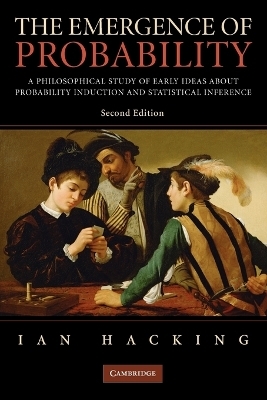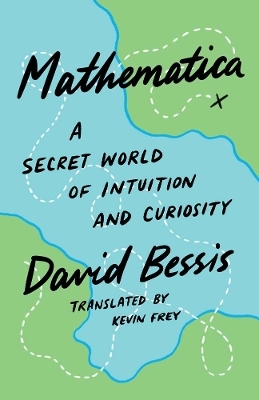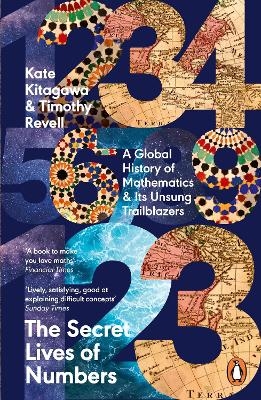
The Emergence of Probability
Cambridge University Press (Verlag)
978-0-521-68557-3 (ISBN)
Historical records show that there was no real concept of probability in Europe before the mid-seventeenth century, although the use of dice and other randomizing objects was commonplace. Ian Hacking presents a philosophical critique of early ideas about probability, induction, and statistical inference and the growth of this new family of ideas in the fifteenth, sixteenth, and seventeenth centuries. Hacking invokes a wide intellectual framework involving the growth of science, economics, and the theology of the period. He argues that the transformations that made it possible for probability concepts to emerge have constrained all subsequent development of probability theory and determine the space within which philosophical debate on the subject is still conducted. First published in 1975, this edition includes an introduction that contextualizes his book in light of developing philosophical trends. Ian Hacking is the winner of the Holberg International Memorial Prize 2009.
Ian Hacking holds the chair of philosophy and history of scientific concepts at the College de France. Until recently he was a University Professor of philosophy at the University of Toronto. He is the author of many books, including Representing and Intervening, The Taming of Chance, Probability and Inductive Logic, and most recently Historical Ontology. He is a fellow of the Royal Society of Canada, the American Academy of Arts and Science, and the British Academy. In 2004 he was elected a Companion of the Order of Canada. He is also the winner of the Holberg International Memorial Prize 2009.
Introduction; 1. An absent family of ideas; 2. Duality; 3. Opinion; 4. Evidence; 5. Signs; 6. The first calculations; 7. The Roannez circle; 8. The great decision; 9. The art of thinking; 10. Probability and the law; 11. Expectation; 12. Political arithmetic; 13. Annuities; 14. Equipossibility; 15. Inductive logic; 16. The art of conjecturing; 17. The first limit theorem; 18. Design; 19. Induction.
| Erscheint lt. Verlag | 31.7.2006 |
|---|---|
| Zusatzinfo | Worked examples or Exercises |
| Verlagsort | Cambridge |
| Sprache | englisch |
| Maße | 152 x 229 mm |
| Gewicht | 362 g |
| Themenwelt | Geisteswissenschaften |
| Mathematik / Informatik ► Mathematik ► Geschichte der Mathematik | |
| Mathematik / Informatik ► Mathematik ► Wahrscheinlichkeit / Kombinatorik | |
| Naturwissenschaften | |
| Sozialwissenschaften | |
| ISBN-10 | 0-521-68557-5 / 0521685575 |
| ISBN-13 | 978-0-521-68557-3 / 9780521685573 |
| Zustand | Neuware |
| Haben Sie eine Frage zum Produkt? |
aus dem Bereich


